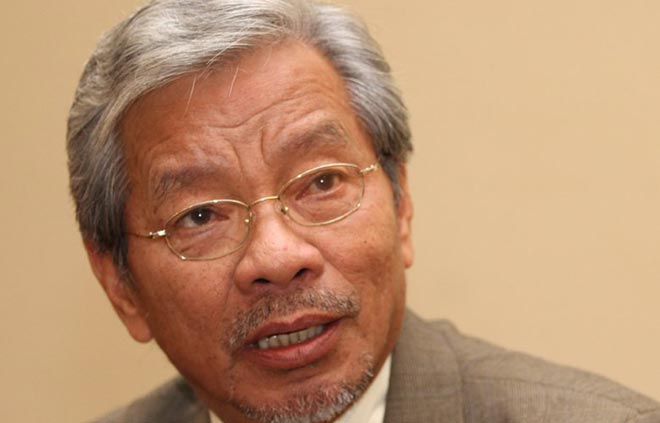State decides against hiring workers from Bangladesh for oil palm plantations, mulls recruitment from Asean

Tan Sri Datuk Amar Dr James Masing
KUCHING: Sarawak has decided not to recruit Bangladeshi workers for the plantation sector as they cannot meet the physical demands of the job.
According to Land Development Minister Tan Sri Datuk Amar James Masing, the state is now scouting for workers from other countries such as Myanmar, Thailand and Vietnam.
“We have decided not to take in Bangladeshi workers as we have found out that they are not suitable to work in the plantation sector,” Masing told The Borneo Post here yesterday.
Plantations in the state are facing severe shortage of manpower especially harvesters and as a result, the state has been losing a staggering RM1 billion annually mainly due to the uncollected fresh fruit bunches (FFB).
To alleviate the shortfall of about 30,000 workers, the state planned to recruit 12,000 workers from Bangladesh to harvest the FFBs two years ago.
However, plantation owners in the state were against the idea as they found out that Bangladeshi workers were not suitable for the job.
The bulk of oil palm plantation workers in the state are Indonesians. On this, Masing said it was risky to rely too much on them as Indonesia had also opened up many oil palm plantations and Indonesian workers might prefer to work in their own country.
“It’s not wise for us to depend on the Indonesian workers in the plantation sector because they are our main competitor in the global market,” said Masing.
As at press time, Human Resources Minister Datuk Seri Richard Riot Jaem could not be reached for comments.
Meanwhile, Masing considered the increase of levies on foreign workers for plantation sector from RM590 to RM1,500 as too high and he would hold discussions with the Sarawak Oil Palm Plantation Owners Association (Soppoa) to get its feedback and recommendations before making the necessary proposals to the federal government.
“The huge jump for levies imposed on foreign workers for the plantation sector would further curtail the growth of the plantation sector in Sarawak, which has been experiencing increased cost of production and low profitability due to the low price of crude palm oil in the global market.
“But we will hold discussions with Soppoa first and see how we can get the necessary feedback before we can forward their recommendations to the federal government,” added Masing.
The new levies for foreign workers was announced by Prime Minister Datuk Seri Najib Tun Razak on Jan 31 as part of a revised budget mechanism to help cushion the impact of the continuous declined of crude oil price in the global market.
